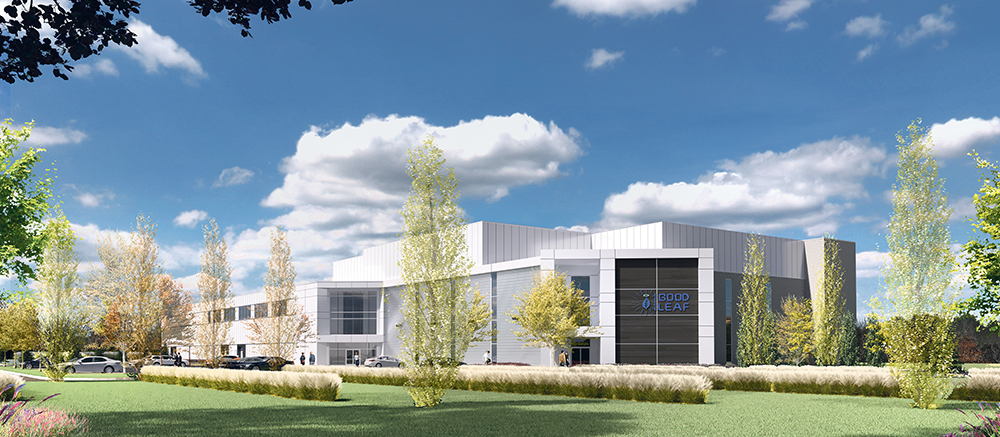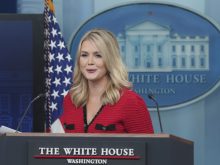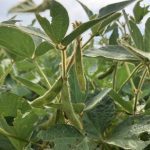One of Canada’s largest indoor agriculture companies plans to grow fresh lettuce products year-round in Alberta as part of its bid to be a global leader in indoor vertical farming.
GoodLeaf Farms is expanding into Western Canada by constructing a 74,000-square-foot facility in Calgary, expected to be completed by the end of 2022. The warehouse-style operation will be about twice the size of the company’s flagship facility in Guelph, Ont., making it the largest of its kind in Canada.
“We all know that farming in Alberta has its challenges, and GoodLeaf’s state-of-the-art vertical farms are equipped to grow greens 365 days a year, creating a consistent and reliable food source for Albertans,” said provincial Agriculture, Forestry and Rural Development Minister Nate Horner during a recent news conference.
Read Also

Russian wheat exports start to pick up the pace
Russia has had a slow start for its 2025-26 wheat export program, but the pace is starting to pick up and that is a bearish factor for prices.
“This is an important step towards providing local alternatives in our produce aisles, which are highly dominated by imports from the southern U.S. or Mexico.”
The facility is expected to grow more than one million pounds of “fresh, local leafy greens each year, which will be on the shelves of grocery stores across Western Canada by early 2023,” said a company statement.
As part of the Alberta government’s new $10-million Investment and Growth Fund, GoodLeaf received $2.73 million as an incentive to locate in the province. It is the first of four projects approved under the fund designed to promote resiliency in supply chains, said provincial Minister of Jobs, Economy and Innovation Doug Schweitzer.
“The other three, you’re going to have to wait for (details) as we roll them out,” he said. He added all four will involve capital investments by companies totaling about $845 million, creating nearly 2,000 construction jobs as well as hundreds of permanent jobs in Alberta.
GoodLeaf grows products in Guelph ranging from pea shoots and baby spinach to microgreens such as radishes, arugula and broccoli. They are raised in vertically stacked trays containing a peat substrate, which supports the plants as they’re fed nutrient-rich water using an ebb-and-flow system.
“Vertical farming — for those that aren’t familiar — from the outside, it looks like a standard warehouse industrial space,” said Jeff McKinnon, senior vice-president of network development at GoodLeaf. “On the inside, it’s outfitted with a lot of technology. We use height and stack technology to be able to optimize output.”
The facility, in an industrial park at 108 Avenue in southeast Calgary, will use a proprietary blend of LED lighting. It emulates light in the blue and red wavelengths to mimic the effect of spring sunshine.
It will be combined with water management and airflow automation, resulting in “roughly 50 times the output capacity of traditional agriculture” while consuming 95 percent less water, said McKinnon.
Indoor growth makes the crop immune to weather, weeds and insect damage, eliminating the need for pesticides and herbicides, he said.
“It also allows us to test the product, so before our product actually leaves the facility, it’s been tested to ensure that it’s safe, meaning there’s no human pathogens within the product.”
The facility is expected to create about 70 jobs after it starts production. Roughly half will consist of engineers, plant scientists, biologists, food safety experts, automation technicians, computer programmers and data architects, said McKinnon.
The indoor farm will be GoodLeaf’s second location in Canada following the 2019 launch of its flagship operation in Guelph. It also has plans to raise indoor crops in Quebec in 2023.
The Calgary facility has been designed to allow future expansion. Horner said the company is helping fulfill the Alberta government’s goals to attract investment in value-added agriculture.
“Looking at the bigger picture as Alberta emerges from the COVID-19 pandemic, we’re focused on creating a dynamic economic future for our province … We’ll be looking at the agri-food sector to help lead that recovery and growth, and this project contributes to our progress.”
GoodLeaf is an “early stage, sort of technology-driven business,” so McKinnon said he could not disclose the level of capital investment in the project. However, he added he “would say it’s significant.”
The $2.73 million in provincial funding “was a small component to our capital cost, but it’s the signal that we’re wanted,” he said. “It’s the signal that there’s continued support from government, so I would say it was extremely important in that regard.”
The company considered other provinces in Western Canada as potential sites for its expansion, “and then once we sort of landed on Alberta being the preference, it really came down to Edmonton, Lethbridge, Red Deer and Calgary.”
Among the advantages offered by Calgary is access to major transportation corridors, allowing GoodLeaf to send its products to several large distribution partners in food service and retail “through Alberta, British Columbia and to some extent the Prairies,” said McKinnon.
“We are research heavy, so again Calgary brings with it access to post-secondary institutions (and) community colleges where we can engage and continue to optimize our business model.”
















